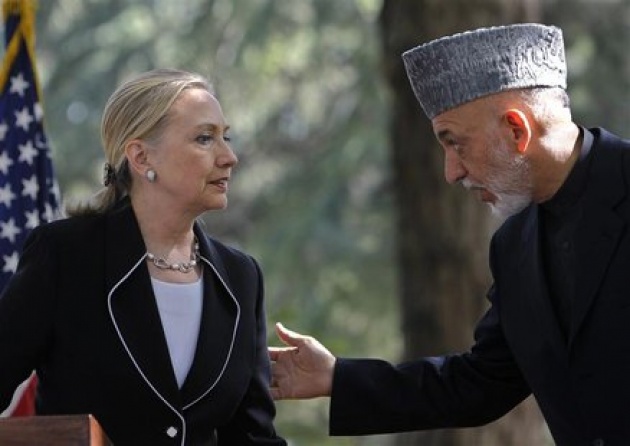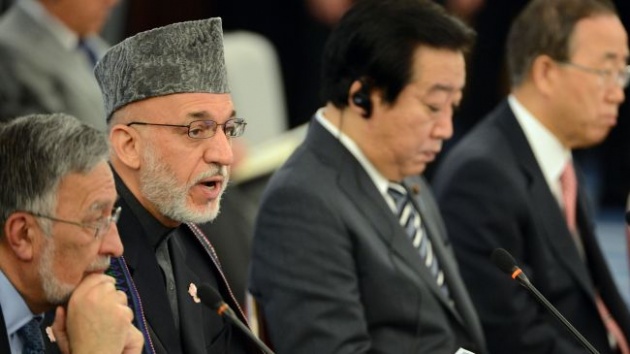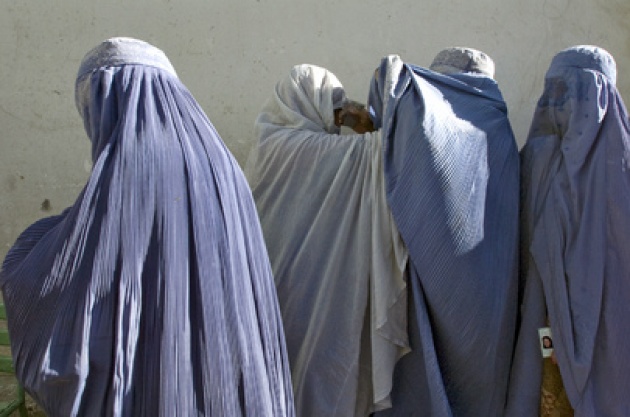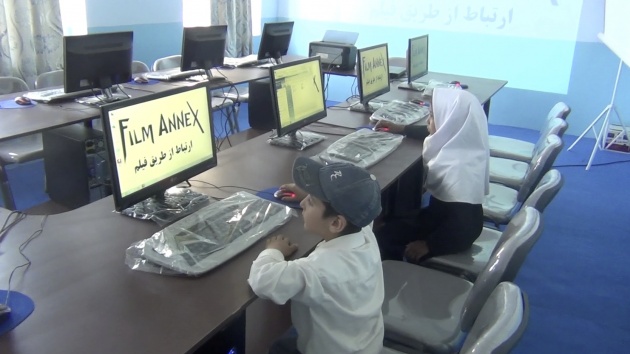
Many have sought to conquer Afghanistan - and failed. Before the Soviets and most recently the US/NATO, it has been the British Empire. They opted to give that piece of the Empire up rather quickly, even before giving India and Pakistan independence. Back then the benefits of owning Afghanistan appeared minimal and the costs in fighting off resistant, hard nosed locals were not justified by the spoils. Ironically, today the reasons to "control" Afghanistan appear substantively greater, from geo-strategic positioning to yet untapped but recently identified resources sought by China, Russia, neighbors as well as the West. However, despite superior firepower, drones and intelligence, today's manifestation of conqueror is no more likely to achieve the goal, at least by military force. See our Blog for Film - http://diplomaticallyincorrect.org/blog_post/losing-afghanistan-by-ambassador-mo/36085

“Major non-NATO Military Partner”
US Secretary of State Hillary Clinton announced that Afghanistan will now be designated as "major non-NATO military partner" of the United States, joining countries like Australia, Japan, Egypt and Israel. The partnership provides for favored treatment in acquiring/purchasing weapons, and undoubtedly Washington and the current Afghanistan Government have much vested in fending of the Taliban and potential resurgence of Al-Qaeda. However, before the US ever got into the invasion business in Afghanistan I was convinced that objectives of stabilizing the country and delegitimizing the Taliban would be more effectively realized through education, development and a more open country/society.

Tokyo Donor Conference:
Japan today hosted another "donor conference" for Afghanistan, to cover everything from building schools to spurring the economy. The success of such conferences has been steadily fading - donor fatigue, (although today’s conference managed still impressive pledges of $16billion through the end of the US/NATO combat mission scheduled for 2014). There has also been criticism of corruption, justified and not, but it is almost inevitable when money is delivered in large chunks to a central distribution source that accountability may be lacking.

UN Welcomes New Commitments:
“But let us be clear: transition must not translate into short-term measures only. We should give the people of Afghanistan the long-term prospect of a better future, and ease their worries that Afghanistan may be abandoned. We are all aware of serious concerns regarding Afghan delivery and accountability on governance commitments. These must be addressed in the interest of the Afghan people and also to maintain donor confidence – but we must be fully conscious that Afghanistan's institutions are still in their nascent stages.” In this context, UNSG Ban Ki-moon welcomed the establishment of a so-called Tokyo Mutual Accountability Framework – which sets out the principles of the partnership between the international community and Afghanistan – as a means of providing confidence to Afghans and international donors that the commitments they have made to each other will be monitored and honored.
UNSG Ban promised that the UN will continue its long-running engagement with Afghanistan, noting the need for “reasonable expectations of what the United Nations can and cannot achieve. In close coordination with the major stakeholders and within the limits of our limited resources, we will do our utmost to help the Afghans fill the gaps that may arise as transition deepens. That means strong support, throughout the Transformation Decade, for the country's economic and social development, for building its institutional capacity, for basic services and social protection, for jobs, justice and the rule of law.”

Investments Over Donations:
Donations are always welcome, but Afghanistan does not need so much free money as investments. Anyway, Afghanistan has enough resources in the ground to transform it into the Switzerland of Central Asia, (well maybe the Azerbaijan of Central Asia). Afghanistan is also a decentralized state with several different tribal groups, ethnicities, languages, cultures and even perspectives (sects) on the dominant religion, Islam. Investing in Afghanistan of course will be its own challenge, but demanding and expecting accountability from business partners and even local/regional political/social leaders is more likely to succeed than expecting such from central authorities themselves distant from the point of interaction.

Afghanistan’s Place in a Resource Hungry World:
Resource hungry China is already bringing in its formidable investment operations. There is a “joke” making the rounds that the US military will “tame” Afghanistan and the Chinese will scoop the spoils. However, most Afghanis are not eager to become a colony of China. Contrary to the popular image spawned after decades of invasion and occupation, Afghanis are outgoing and eager to embrace modern technology. It would be a mistake for any to only see Afghanistan in terms of minerals burried in the ground. Its people are both a resource and potential partner for those who will invest in them. Afghanistan has a progressive history. Women in the big urban centers walked without burkas and worked alongside men in teaching, medicine and technology. The Taliban are as much a product of a change-resistant patriarchal village culture that was best able to resist Soviet military occupation. See our Blog for Film - How Freedom Wins Free-Market Place of Ideas (Bosnia Precedent for Afghanistan)”

Afghanistan will not be conquered, except perhaps anew from within through education and development led by progressive forces long repressed by conflict and the regressive social/cultural forces most empower by the chaos of war. See our Blog for Film – “Francesco Rulli Continues Charlie Wilson’s War”

For more information on Film Annex building schools in Afghanistan, connecting to Internet and encouraging education of girls and boys link to "Afghan Development WebTV”.
Ambassador Muhamed Sacirbey - FOLLOW mo @MuhamedSacirbey
Facebook-Become a Fan at “Diplomatically Incorrect”
Twitter – Follow us @DiplomaticallyX
For many further current news event articles, see our popular video blogs at “International Financial Crisis” Channel



